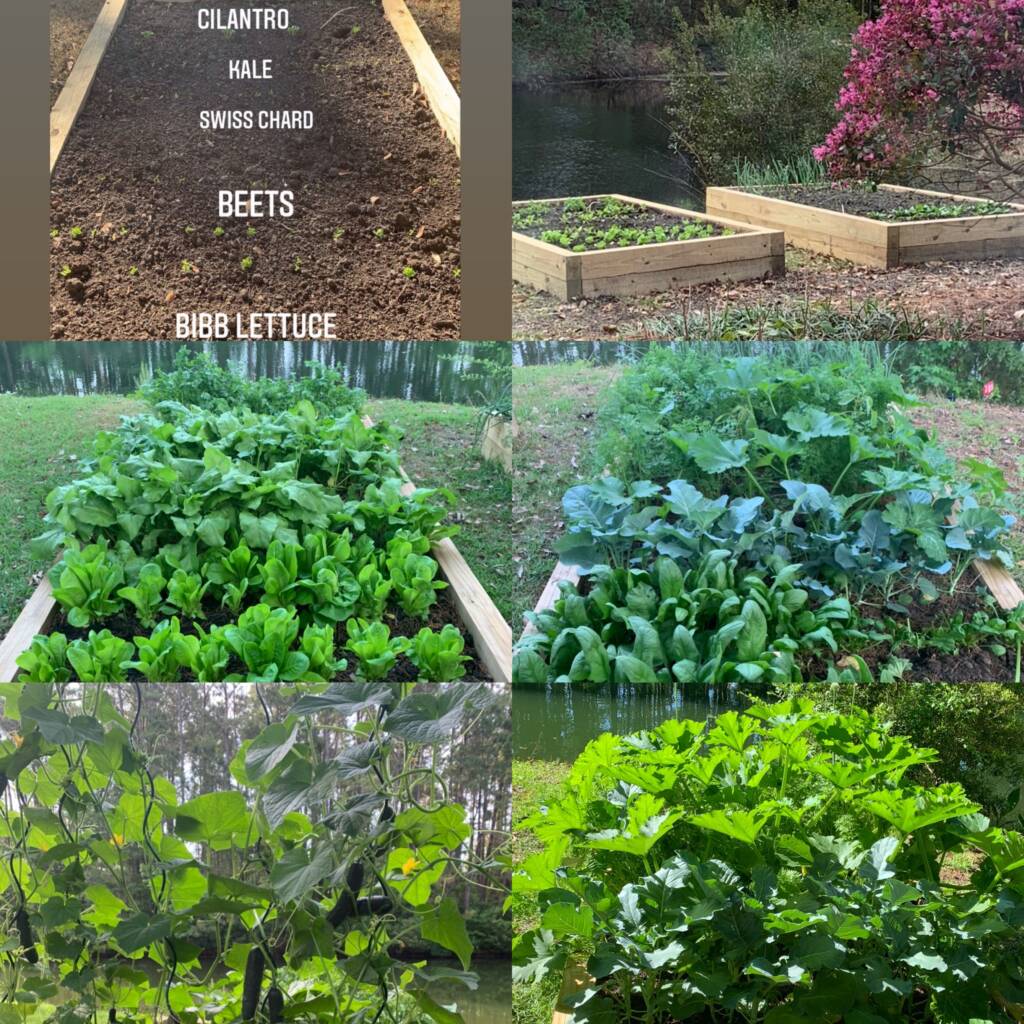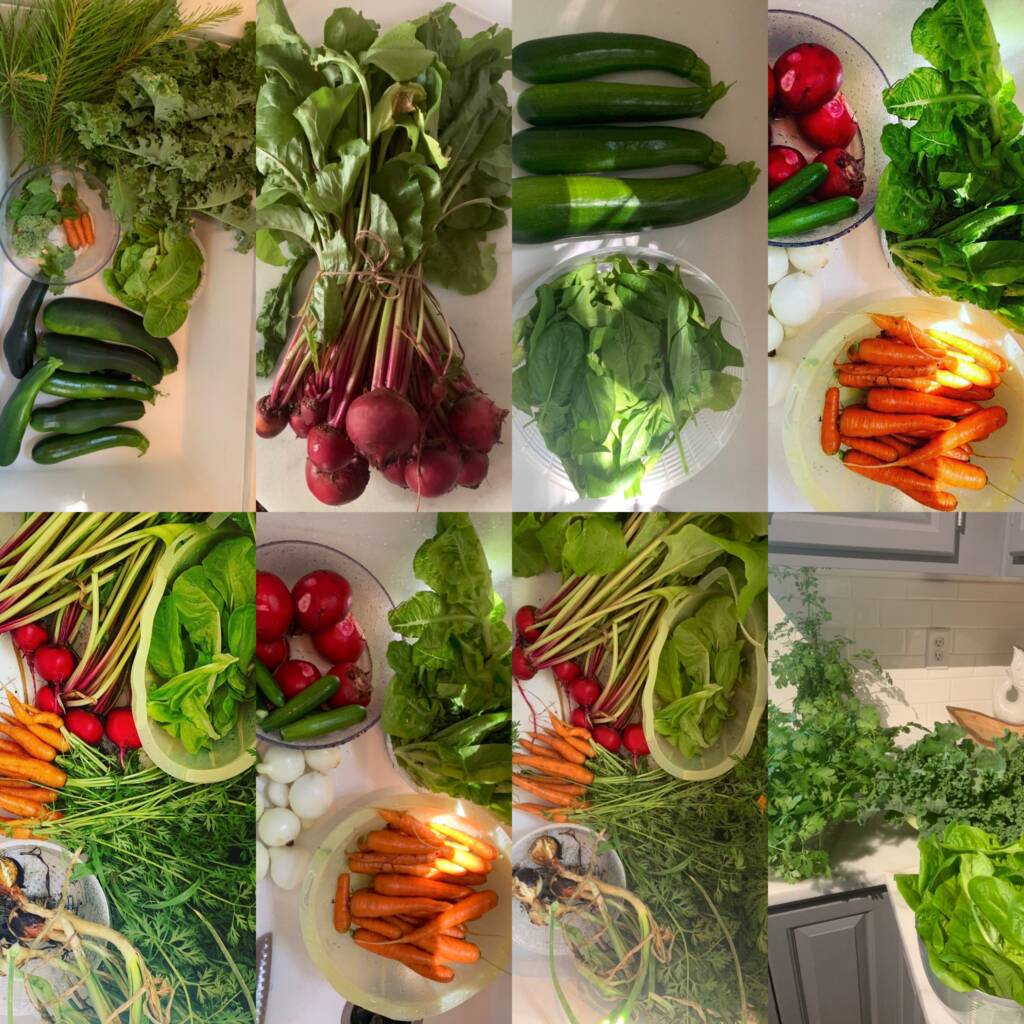Despite the hardships of last year, it had its gifts. Many families had time together they could never have otherwise orchestrated. Others took stock of their lives: the people in it, the habits they had, where they spent their time. The “great pause” of 2020 gave us all the gift of perspective, a (long) moment to observe and take inventory of our health habits, our patterns, our relationships, our work.
One thing I resolved to do differently was to become more self sustaining. Not in the hyper-independent streak many of you know me to already possess, but more in a cultivation of resourcefulness. While this choice involved several changes beyond the scope of this blog, one of the most delightful aspects has been in vegetable gardening. While I’ve had some minor successes with plants in the past (I bring orchids to life! I love troubleshooting a finicky fiddle leaf fig!), I’ve also had my, shall we say”challenges.” I’ve managed to kill three (!) aloe plants from overwatering. One simply jumped out of it’s pot – ending it’s own life in a pile on my living room floor. Same with snake plants and some succulents (insert exaggerated eye roll here). If it needs to be ignored, it’s not for me!
So let’s just say my expectations were low. This was new and frankly I did not even crack open the book on square foot gardening my mother gave me, nor any other one for that matter. I also had help – my stepdad built me two raised beds, sturdy and well constructed. I personally hauled a combination of topsoil and compost to fill them (and was grateful for my K-Laser that week – magic for an overworked back). I ordered enough seeds from Johnny’s Selected Seeds for a small organic farm. I first thought I would transplant – starting them in those tiny plastic containers them moving them to my beds when they had sprouted and grown a bit. This turned out to have quite a bit of attrition, and many simply didn’t sprout. So I took to direct sowing them – whispering sweet nothings to tiny seeds as I haphazardly sprinkled them directly into their beds. I surrendered them to nature.
Imagine my delight when they actually sprouted! It is a special thing to surprise yourself in your 30s (or at any adult age, really). Truly, if you need a sense of awe in your life, plant some seeds. Perhaps it was especially life affirming given all the heaviness of the last year, but I had (and continue to have) a sense of childlike wonder watching them grow and continue to offer gift after gift. Literally everything I planted took off with abandon, with the exception of leeks (didn’t survive the transplant process) and asparagus (evidently they don’t fruit for 2-3 years, are quite bushy and really need to be set off by themselves). My only other issue has been how well my zucchini have done. They’ve overtaken my second bed, boxing out carrots and onions for sunlight. They are enormous and next year will go on the edges only, leaving other veg with a fighting chance. Fortunately, frozen zucchini is an excellent smoothie filler – making them thick and creamy, and I love a spiralized squash recipe.


While the gifts are many, here are my favorites from my rookie vegetable garden season:
- Cultivate a sense of awe in your life. Nurturing something to grow is a simple way to do this. I also love to watch sunsets and especially sunrises – if you can’t find something magical in that, it’s your own darn fault. Take time to marvel, wherever that is for you.
- Time spent in nature has exponential returns. Many of us work and live manmade boxes with polluted air (3-5x more polluted than outdoors – Austin Air systems helps mitigate that). We’re around LED and fluorescent lighting that is foreign to our bodies and stresses our mitochondria (read: makes us tired but wired). Time spent in nature calms our nervous systems and reconnects us with our body’s natural circadian rhythms (another reason to watch the sun rise and set – the red light in the morning boosts our cortisol and the red light at night boosts melatonin). Nature is the coolest!
- Getting dirty boosts our immunity. There are 100,000,000,000,000,000,000,000,000,000,000 viruses in the air, the same amount in the soil and and an equal amount in the ocean. It is contact with these (NOT hiding from them in fear, with isolation or behind a mask) that boosts our immunity and strengthens our body’s ability to fight off infection. There are no “bad” bugs, only weak immune systems.
- There is no better way to connect with your food source. Organic seeds and no pesticides. I know it 1000%. No need to read food labels, research ingredients or keep up with the rebranding of food additives.
- It’s peaceful. This is perhaps a reiteration of #1 and #2 but it bears repeating. Many of my patients struggle with anxiety or depression, and at an increasingly young age. Last year made us take stock of our emotional toolkit – how sharp are your tools? How many do you have? I had as many conversations about maintaining our mental health as our physical realm. Gardening and time in nature continually redelivers us to the “present” – the only gift that we can experience over and over again, each and every moment.



